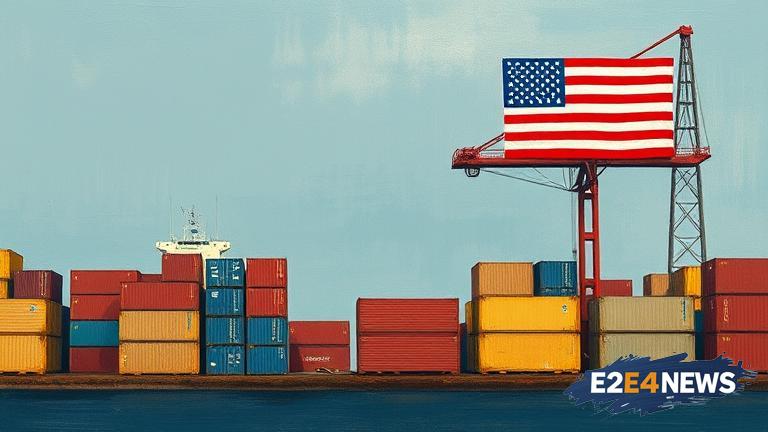The de minimis exemption, a longstanding provision in US trade policy, is coming to an end. This exemption allowed for the duty-free importation of goods valued below a certain threshold, typically $800. The move is expected to have significant implications for international trade, e-commerce, and businesses that rely on imports. The US Trade Representative’s office has announced that the exemption will be phased out over the next few years. This change is part of a broader effort to reform US trade policies and address concerns around trade deficits and intellectual property protection. The de minimis exemption was initially introduced to simplify customs procedures and reduce administrative burdens on low-value imports. However, critics argue that it has been exploited by some countries to circumvent tariffs and other trade restrictions. The phase-out of the exemption is likely to affect a wide range of industries, including e-commerce, manufacturing, and logistics. Businesses that rely on imports will need to adapt to the new rules and potentially face increased costs and complexity. Consumers may also feel the impact, as prices for imported goods could rise. The US government has stated that the move is intended to level the playing field for domestic businesses and protect American jobs. However, some experts warn that the change could lead to retaliatory measures from other countries, potentially escalating trade tensions. The phase-out of the de minimis exemption is a complex issue, with multiple stakeholders and interests involved. As the US trade policy landscape continues to evolve, businesses and consumers will need to stay informed and adapt to the changing rules. The US government has announced plans to provide support and guidance to affected businesses, including training and resources to help them navigate the new regulations. Despite these efforts, some companies may struggle to comply with the new rules, particularly small and medium-sized enterprises. The end of the de minimis exemption is also likely to have implications for international trade agreements, including the US-Mexico-Canada Agreement (USMCA) and the World Trade Organization (WTO). As the global trade landscape continues to shift, the US and other countries will need to work together to address common challenges and promote fair and open trade practices. The US government has emphasized its commitment to free and fair trade, while also protecting American interests and jobs. The phase-out of the de minimis exemption is a significant development in this context, with potential far-reaching consequences for international trade and commerce. In conclusion, the end of the de minimis exemption marks a significant shift in US trade policy, with implications for businesses, consumers, and the global trade landscape. As the rules continue to evolve, it is essential to stay informed and adapt to the changing landscape.
